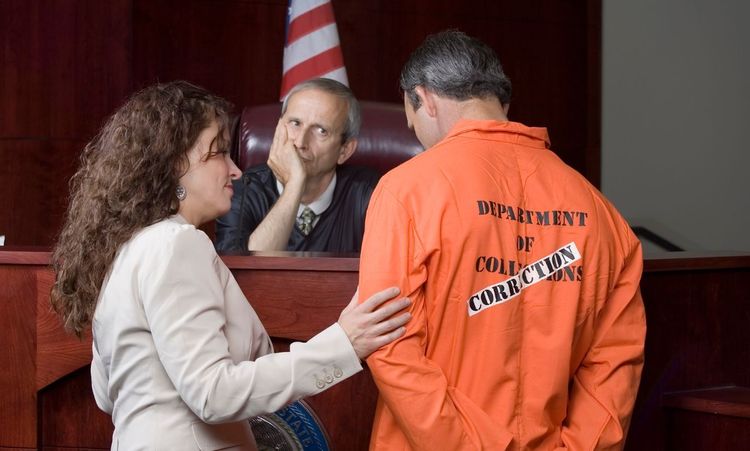Facing criminal charges can feel overwhelming. You may be unsure of how to protect your rights or navigate the legal maze. In this article, we'll discuss why hiring a criminal defense attorney matters. We'll cover their role, key benefits, cost considerations, and how to choose the right attorney. By the end, you'll have a clear roadmap for securing skilled legal representation.
Understanding the Role of a Criminal Defense Attorney
A criminal defense attorney safeguards your rights at every step. They interpret complex laws and guide you through court procedures. These professionals collect evidence, interview witnesses, and craft defense strategies. Their job starts the moment you suspect legal trouble and extends through appeals if needed.
Legal Advisor and Advocate
Your attorney reviews the charges and explains possible penalties. They ensure you understand bail, hearings, and trial options. They also serve as your voice in negotiations with prosecutors. When confusion looms, they clarify options and recommend the best course of action.
Investigator and Strategist
Experienced attorneys dig into case details. They obtain police reports, examine forensic evidence, and interview witnesses. They anticipate prosecution plans and build counterarguments. Their strategy aims to reduce charges or secure dismissal whenever possible.
Benefits of Hiring a Criminal Defense Attorney
Expertise in Legal Procedures
Criminal courts follow strict rules. Missing a deadline or filing forms incorrectly can damage your case. A defense attorney masters these procedures. They file motions, handle discovery requests, and argue pretrial issues. Their familiarity with local rules can make or break your defense.
Negotiating Plea Bargains
Prosecutors often offer plea deals to avoid trial. A skilled attorney evaluates offers and negotiates terms to ensure optimal outcomes. They leverage case weaknesses to seek reduced charges or lighter sentences. You receive guidance on whether a plea is a suitable option for your situation.
Evaluating Case Strengths and Weaknesses
Your lawyer assesses evidence against you and for you. They spot flaws in eyewitness testimony and procedural errors in arrests. They also gather favorable proof, such as alibi witnesses or expert reports. This balanced view informs your defense strategy.
Influencing Case Outcomes
Studies show defendants with private counsel fare better than those without. Lawyers present compelling arguments, cross-examine witnesses, and challenge evidence. Their courtroom experience increases the likelihood of acquittal or a favorable verdict.
Providing Emotional Support
Legal battles can be emotionally draining. Your attorney offers reassurance and straightforward advice. They shield you from legal jargon and overwhelm you. With support, you can focus on your well-being and cooperate fully in your defense.
Differences Between Public Defenders and Private Attorneys
Availability and Accessibility
Public defenders handle heavy caseloads. Your attorney may have limited time for each client. Private lawyers manage fewer cases and dedicate more hours to your defense. You enjoy quicker responses and personalized attention.
Experience and Specialization
Public defenders are skilled but may lack deep expertise in specific crimes. Private defense attorneys often specialize in DUI, drug offenses, or white-collar crimes. Their niche experience can offer strategic advantages in complex cases.
Consideration of Legal Fees
Public defenders work at no cost but come with resource constraints. Private attorneys charge fees, which vary by experience and location. However, investing in a seasoned lawyer can lead to reduced fines, shorter jail time, or case dismissal—saving more in the long run.
When to Hire a Criminal Defense Attorney
During Allegations or Investigation Signs
If law enforcement questions you, it's time to call a lawyer. Early representation prevents self-incrimination and preserves evidence. Your attorney can advise you on whether to speak or remain silent.
After an Arrest
Once arrested, you face arrest reports, bail hearings, and potential arraignment. Your attorney can arrange for bail reduction and explain the charges. Early involvement sets a strong foundation for your defense.
Impact of Early Legal Intervention
Studies indicate early legal intervention leads to better outcomes. Lawyers collect fresh evidence, interview witnesses promptly, and file pretrial motions. Acting quickly can prevent destructive mistakes and strengthen your case.
How to Choose the Right Criminal Defense Attorney
Credentials and Reputation
Look for attorneys with strong track records in your jurisdiction. Read reviews, check state bar records, and ask for referrals. A history of successful verdicts and satisfied clients signals quality representation.
Communication Style
Your attorney should explain legal terms in plain language. They should answer questions promptly and offer realistic expectations. Clear, honest communication builds trust and reduces stress.
Fee Structure
Understand how billing works—hourly rates, flat fees, or retainers. Ask what services are included and what additional costs might arise. A transparent fee structure prevents surprises later on.
Connection and Comfort
You'll share personal details with your lawyer. Choose someone you feel comfortable with and can trust. A strong relationship enhances collaboration and ensures nothing important gets overlooked.
Long-Term Benefits of Legal Representation
Hiring a criminal defense attorney can yield lasting advantages. Avoiding a conviction preserves your employment and housing prospects. A clean record protects professional licenses and educational opportunities. Even when charges seem minor, quality representation can prevent lifelong negative consequences.
Conclusion
Facing criminal charges is one of life's toughest challenges. A dedicated criminal defense attorney offers expertise, strategic negotiation, and emotional support. Whether you choose a public defender or a private lawyer, early involvement is critical. By selecting the proper counsel, you stand a better chance of protecting your rights and securing a favorable outcome.




